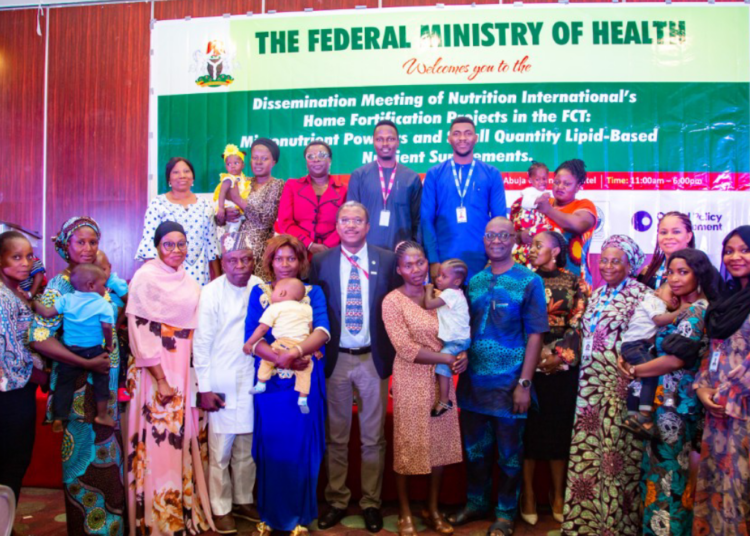Federal government and global nutrition organisation, Nutrition International (NI) have said at least 17 million Nigerian children are malnourished, making Nigeria the country with the highest burden of malnutrition in Africa and the second highest in the world.
The two organisations disclosed this in Abuja yesterday during a meeting to disseminate the findings of the home fortification implementation research using Small Quantity Lipid-based Nutrient Supplements (SQLNS) and Multiple Micronutrient Powders (MNPs) administered to eligible target population in the Federal Capital Territory.
Speaking during the meeting, the director health and nutrition, Ministry of Health, Dr Binyerem Ukaire, said malnutrition has remained a significant public health problem despite huge investments.
Ukaire said the major underlying causes of malnutrition in Nigeria include poor infant and young child feeding practices, poor access to and consumption of safe nutritious diet rich in both macro and micronutrients, inadequate access to healthcare, water, and sanitation, and a high level of poverty.
“The Federal Government of Nigeria has made concerted effort in collaboration with development partners to reduce the burden of malnutrition in the country,” he said.
On his part, NI Nigeria, country director, Dr Osita Okonkwo, said malnutrition isn’t just a chronic problem, it’s an urgent problem.
Presenting, the summary of findings, Okonkwo said the implementation fidelity of the project was high with appropriate targeting of poor households with under-five children as beneficiaries.
Okonkwo said caregivers’ perception is improving with increasing duration of the intervention and acceptability of the MNPs by the children and caregivers.
He said key drivers of adherence include perceived improvements in health, appetite, strength, and physical growth of index children’s benefits
He recommended that Integrated Community Outreach Clinics have demonstrable potential, capacity, and acceptability to distribute MNP and other nutrition commodities.
He, however, said supervision and logistic supply need to be strengthened to ensure the teams deliver the commodity according to plan.
“Similarly, improved engagement with other stakeholders such as community gatekeepers and household heads can increase acceptability and utilisation of MNP in households,” he said.
We’ve got the edge. Get real-time reports, breaking scoops, and exclusive angles delivered straight to your phone. Don’t settle for stale news. Join LEADERSHIP NEWS on WhatsApp for 24/7 updates →
Join Our WhatsApp Channel










